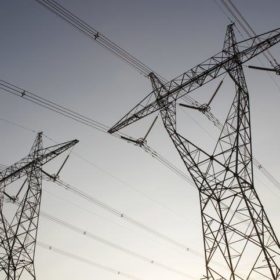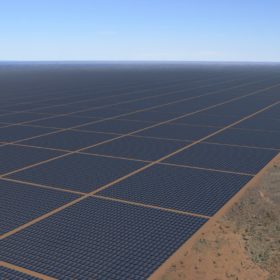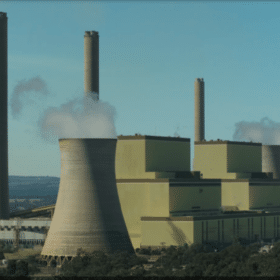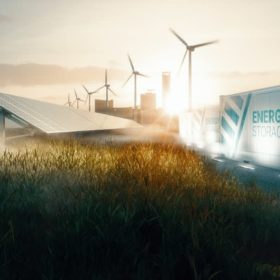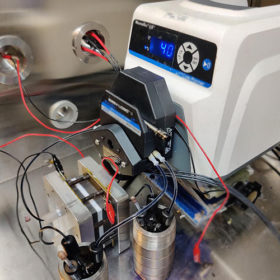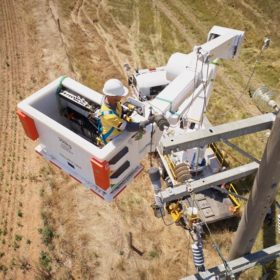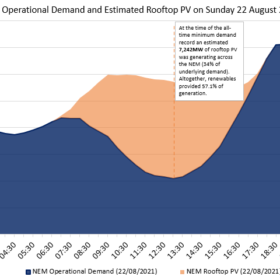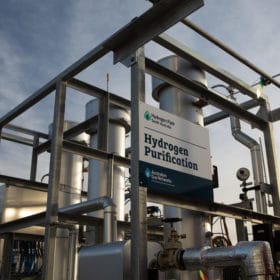Solar industry pioneer pushes for National Transmission Network
A parliamentary inquiry has been told Australia’s ageing transmission network “urgently” needs upgrading to deliver new solar PV and wind power to cities as the nation’s transition to renewable energy generation continues to accelerate.
Sun Cable plans capacity increase for world’s largest solar+storage project
The world’s biggest solar PV and storage project is set to get even larger with the Singapore-based Sun Cable announcing it plans to increase the renewable energy generation and storage capacity of the $26 billion Australia-ASEAN Power Link being developed in northern Australia.
Growatt unveils off-grid inverter
The 3 kW inverter has an efficiency of 95% and features a surge power of 9000 VA. According to the manufacturer, the device is compatible with mainstream lead-acid and lithium-ion batteries.
Secrecy and high level splits: ‘coal-keeper’ uproar but expert says politics won’t stop the inevitable
The Energy Security Board’s market reforms have come under fresh scrutiny after ministers met last week under a veil of secrecy, apparently stirring deep rifts between federal and state ministers and other stakeholders. While it remains unclear what the Board’s proposed capacity market, dubbed by some as ‘coal-keeper’, might look like, Dan Cass, who leads energy policy at the Australia Institute, told pv magazine Australia as long as Angus Taylor isn’t steering, he’s optimistic that state governments and the ESB could work towards a reasonable outcome.
Hydrogen must take centre stage at COP26
Hydrogen is likely to play a crucial role in the pursuit of energy transition over the coming years. However, the UN Climate Change Conference of the Parties (COP26) in Glasgow in November will be the acid test that determines whether involved players are now prepared to put their words into action.
Coupling PV-powered electrochemical water splitting with battery storage
A German research team has developed a photovoltaic-electrochemical device for alkaline water electrolysis that can be linked to battery storage. The proposed system configuration can not only smoothen out the PV power fluctuations and facilitate power coupling, but also improve solar to hydrogen efficiency.
Redox flow battery retains more than 90% of capacity over 6,000 cycles via new catholyte
The battery was built with a new catholyte and a symmetry-breaking strategy, which consists of changing the symmetry of the redox-active organic molecules instead of using the common approach of attaching a hydrophilic functional group.
Spark accepts $5.2bn takeover bid from American consortium
Australian electricity network owner Spark Infrastructure has accepted a $5.2 billion takeover bid from a North American consortium led by private equity giant Kohlberg Kravis Roberts & Co.
Solar eclipses coal for first time, setting renewable record
For the first time in the history of our national energy market, solar generated more electricity than coal, providing 41.4% of the national market on Sunday, while coal accounted for 41.2%.
Two new hydrogen platforms launch to couple industry with customers
Two hydrogen platforms have launched in Australia to connect hydrogen producers with consumers, ultimately trying to catalyse projects and the industry more broadly. The first, NERA’s HyCapability, maps hydrogen capability across Australia, while the other focuses on New South Wales and the developments of its hydrogen hubs.
